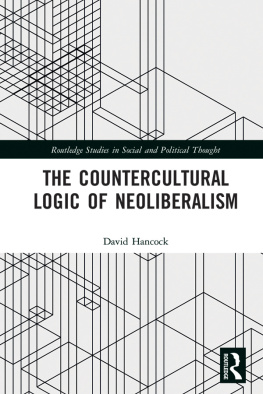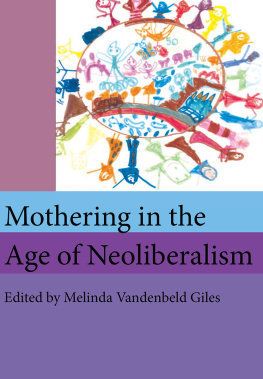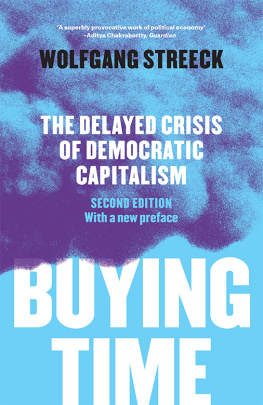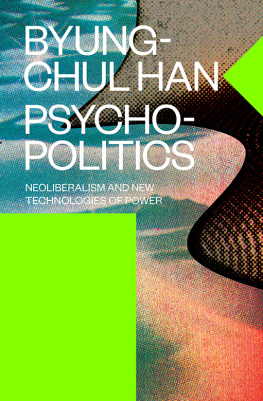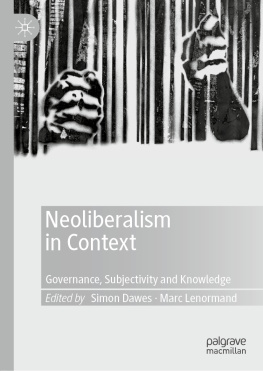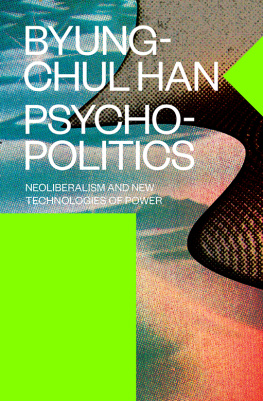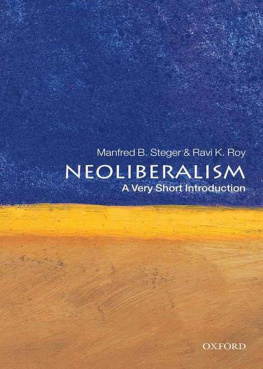The Countercultural Logic of Neoliberalism
Why, since the financial crisis of 2008, has neoliberal capitalism remained seemingly impregnable? Why, when it is shown as no longer capable of delivering on its economic promises does its logic pervade all facets of contemporary life? How has it seduced us? This book examines the seductive appeal of neoliberalism by understanding it as a fundamentally countercultural logic. Unlike earlier modes of capitalism, neoliberalism is infused by spirit of rebellion and self-creation, with the idealised neoliberal subject overturning traditional morality whilst creating new modes of being based on risk and excess. Tracing the development of the logic of neoliberalism from its beginnings in the thought of Friedrich Hayek in the wake of the post-war period, through the work of neoconservative writers overcoming and moving beyond what they perceived as the nihilism of both the counterculture and capitalism of the 1960s and 70s, to its establishment as a new moral order underpinning the economic system from the 1980s onwards, the author argues that it is only through a clear understanding of the seduction of neoliberalism that it can be overcome by reimagining our relationships to work and society.
David Hancock is an indepedant scholar. He has published journal articles on the cultural politics of neoconservatism and neoliberalism, and is co-editor of Spaces of Crisis and Critique: Heterotopias Beyond Foucault.
Routledge Studies in Social and Political Thought
The Cultural Contradictions of Anti-Capitalism
The Liberal Spirit and the Making of Western Radicalism
Daniel Fletcher
Peter Berger on Modernization and Modernity
An Unvarnished Overview
Robert Bickel
Imaginaries of Modernity
Politics, Cultures, Tensions
John Rundell
Complexity, Society and Social Transactions
Developing a Comprehensive Social Theory
Thomas Whalen
Critical Theories and the Budapest School
Politics, Culture, Modernity
Edited by John Rundell and Jonathan Pickle
Social and Political Life in the Era of Digital Media
Higher Diversities
David Toews
Towards a Hermeneutic Theory of Social Practices
Between Existential Analytic and Social Theory
Dimitri Ginev
Experiencing Multiple Realities
Alfred Schutzs Sociology of the Finite Provinces of Meaning
Marius I. Bena
For a full list of titles in this series, please visit www.routledge.com/series/RSSPT
The Countercultural Logic of Neoliberalism
David Hancock

First published 2019
by Routledge
2 Park Square, Milton Park, Abingdon, Oxon OX14 4RN
and by Routledge
52 Vanderbilt Avenue, New York, NY 10017
Routledge is an imprint of the Taylor & Francis Group, an informa business
2019 Taylor & Francis
The right of David Hancock to be identified as author of this work has been asserted by him in accordance with sections 77 and 78 of the Copyright, Designs and Patents Act 1988.
All rights reserved. No part of this book may be reprinted or reproduced or utilised in any form or by any electronic, mechanical, or other means, now known or hereafter invented, including photocopying and recording, or in any information storage or retrieval system, without permission in writing from the publishers.
Trademark notice: Product or corporate names may be trademarks or registered trademarks, and are used only for identification and explanation without intent to infringe.
British Library Cataloguing-in-Publication Data
A catalogue record for this book is available from the British Library
Library of Congress Cataloging-in-Publication Data
Names: Hancock, David, 1981 author.
Title: The countercultural logic of neoliberalism / David Hancock.
Description: Abingdon, Oxon ; New York, NY : Routledge, 2018.
Identifiers: LCCN 2018044605 (print) | LCCN 2018048333 (ebook) | ISBN 9781351118668 (Ebook) | ISBN 9780815360285 (hardback)
Subjects: LCSH: NeoliberalismEconomic aspects. | Capitalism.
Classification: LCC HB95 (ebook) | LCC HB95 .H333 2018 (print) | DDC 330.12/2dc23
LC record available at https://lccn.loc.gov/2018044605
ISBN: 978-0-8153-6028-5 (hbk)
ISBN: 978-1-351-11866-8 (ebk)
Typeset in Times New Roman
by Apex CoVantage, LLC
For Peter and Henry
Contents
The origins of this book lie in lines of thought that I began to develop whilst I was a PhD student at Kingston University. I would like to express my gratitude to colleagues from Kingston for their invaluable support, particularly Fred Botting, Scott Wilson, Hager Weslati and Eleni Ikoniadou. I would like to thank my good friends Anthony Faramelli and Lu Dai whose encouragement over a number of years has proved a constant source of inspiration. The article Neoconservatism, Bohemia and the Moral Economy of Neoliberalism was previously published in The Journal of Cultural Research and has been hugely expanded over the first three chapters here. The article Revulsion and Awe: charting the development of the moral economy capitalism and its hero in the American imagination was previously published in the Journal for Cultural Economy and appears here in a revised form as . I would like to thank the editors of the journals and the individuals who peer reviewed these articles for the helpful comments at the time. I would also like to thank the publishers for allowing this material to be republished here. I would like to thank the editors at Routledge for their comments and support as well as the external reviewers. Finally I would like to thank Emily Youngman who puts up with me at home and our two children Peter and Henry who have all made do with a slightly absent person during the writing of this book.
In September 2008, the investment bank Lehman Brothers collapsed and woke the world up to capitalisms greatest crisis in a century. More than a decade has now passed since the crisis began and it has now morphed into a political crisis that shows little sign of abating. Looking back, the most striking thing about the legacy of the crisis is that the mode of neoliberal economic organisation established during the 1980s was not overturned and, if anything, it has only been further embedded. In the US, the two Obama administrations, which came to power in the wake of the financial crisis, carried on with the broadly Clintonite program established in the 1990s of third way neoliberalism in which the power of financialisation prevailed as public money was used to bail out the financial system. No-one responsible for the crisis was prosecuted whilst the oversized rewards of those working within the financial services industry didnt blink. The aftermath of the crisis demonstrated how neoliberalism has successfully colonised government to socialise losses whilst privatising profits. Meanwhile, average earnings in the US have stagnated since the 1970s, despite economic growth, and, perhaps most shockingly of all, life expectancy in the US has begun to decline (Kochanek et al., 2017). Yet the economic order shows little sign of changing. In 2015, on a wave of populist resentment, Donald Trump was elected as President and has embarked upon massive deregulation and tax cuts for the wealthy but with the full support of a culturally regressive conservatism that has emboldened, and often embraced, the far-right. The rise of ethnonationalism across the world is precipitating a crisis of the democratic order whilst the slowly building environmental crisis inexorably continues.

